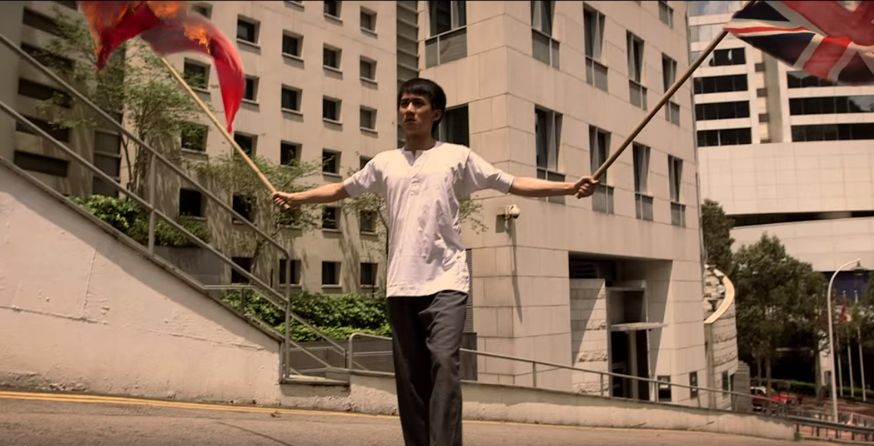A controversial award-winning film that shook up Hong Kong with its bleak visions of the city’s future is to be turned into a pan-Asian franchise, with Japanese, Taiwanese and Thai versions in the works.
The original Ten Years movie was a collection of short films imagining how life might be in Hong Kong in 2025.
Seen as a thinly veiled warning about life under Beijing’s rule — including diminished human rights and widespread censorship — the film was banned on the mainland but was a critical success, with screenings around the world.
Speaking at the official launch of the new project, Taiwanese director Rina B. Tsou said the next batch of filmmakers involved were ready to ride out any political storms the spin-offs might stir up.
“It will be a challenge for us to put [society’s] hidden dangers and hidden fears into film,” Tsou, one of five Taiwanese directors attached to that version of the project, told the 22nd Busan International Film Festival (BIFF).
The original Ten Years (2015) comprised five short films by emerging filmmakers that painted a gloomy view of how life might be in Hong Kong a decade later, 28 years after the former British colony had reverted to Chinese sovereignty.
Segments imagined taxi drivers being banned from speaking in their native Cantonese, self-immolation becoming a form of protest against increased Chinese influence and pro-Beijing “youth guards” patrolling the streets.
– Pollution, virtual reality and surveillance –
In a statement released Monday, the filmmakers explained the Japanese version would explore a country “plagued by pollution and ageing” as well as a “society where morality and personal history are manipulated by technology.”
The film on Thailand, a country currently ruled by the military, would explore “issues of surveillance and government control” while Taiwan’s would paint a picture of an island where “immigrant workers are systematically exploited and the loss of culture and dropping birth rate” have caused its inhabitants to turn to “virtual reality escapes.”
The original idea for Ten Years was conceived during the pro-democracy Umbrella Movement that brought the central business district of Hong Kong to a standstill for 79 days in 2014.
Ten Years was named Best Film at the 35th Hong Kong Film Awards in 2016 after a release that was cloaked in controversy, with accusations that theatre owners had been strong-armed into pulling the film from general release due to its strong anti-Chinese sentiments.
The fact that it was granted the city’s top film award also seemed to divide the domestic industry, with calls to alter the voting methods used to decide that honour as well as arguments over the artistic merits of the film, made on a shoestring budget by inexperienced directors.
Regardless, the film sold out whenever and where ever it screened –- including showings held in public spaces and against the sides of buildings.
Hong Kong-based filmmaker Andrew Choi helped get the original Ten Years made and is back as an executive producer for the franchise. He said the plan was to try to take the project to as many Asian markets as possible.
“The original Ten Years was created during a time of big changes in Hong Kong,” said Choi. “We never imagined it would have such a big impact. With the new project we want to stimulate discussion about the future of each country.”
– ‘I embrace it’ –
Acclaimed Japanese arthouse filmmaker Hirokazu Kore-eda –- long a favourite at the likes of the prestigious Cannes festival -– has come onboard as an executive producer and said at Monday’s official project launch that he hoped the film would help younger Japanese filmmakers find their voice.
“I hope they can look at the current situation in Japan and how we are accepting the future,” said Kore-eda.
Japanese director Chie Hayakawa, one of five Japanese directors signed on, said the original production had shown her the “power of film”.
Meanwhile, Thai director Aditya Assarat said he was aware of the controversy that surrounded the original release in 2015.
“But I embrace it,” he said. “I look forward to talking about politics which has been difficult to do in Thailand over the past 10 years.”
BIFF continues until October 21.




